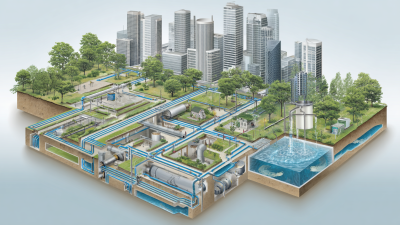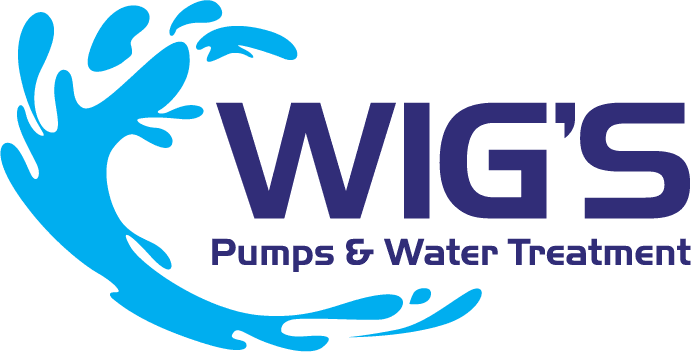Understanding the Importance of the Water System in Our Daily Lives
Water is an essential resource that plays a crucial role in our daily lives, from the moment we wake up to the time we go to bed. Understanding the importance of the water system is paramount, as it is the foundation upon which our health, hygiene, and overall well-being depend. The water system ensures the availability of clean and safe water, which is vital for consumption, sanitation, and various socio-economic activities. This article delves into the top five reasons why the water system is indispensable in fostering a sustainable and healthy environment for individuals and communities alike.
Firstly, a well-functioning water system not only provides access to drinking water but also supports agricultural practices, industry, and recreational activities. Each aspect of our daily routine is interconnected with the efficiency and integrity of the water system. Moreover, recognizing the significance of water conservation and management will empower us to make informed decisions that safeguard this valuable resource for future generations.
By exploring the top five aspects of the water system, we aim to raise awareness about its impacts on our lives and spur action towards its conservation. It is vital to appreciate that the water system is not merely a utility, but a lifeline that sustains the ecosystems and communities we depend on. Emphasizing the importance of the water system can catalyze initiatives focused on sustainability and responsible usage.

The Role of Water Systems in Supporting Daily Human Activities
Water systems play a crucial role in supporting daily human activities, underscoring their importance in our lives. Freshwater resources are essential for drinking, sanitation, agriculture, and industrial processes. According to the United Nations, approximately 2 billion people live in countries experiencing high water stress, highlighting the urgent need for sustainable water management practices. Effective management of these resources can enhance biodiversity, as healthy water systems support diverse ecosystems, which form the backbone of our planet's resilience.
The interaction between human activities and water systems is particularly evident in regions like the Yellow River basin, where intensive human actions have significantly altered water availability and ecosystem health. Research from Beijing Normal University reveals that the intricate relationship between people and water critically impacts ecological protection and sustainable development in these sensitive areas. Furthermore, the United Nations emphasizes that wetlands, vital components of water systems, provide numerous benefits, such as flood regulation, water filtration, and habitat for countless species. These ecosystems also hold immense cultural and recreational value, reinforcing the integral role of water systems in enriching human life and maintaining ecological balance.
Understanding the Importance of Water Systems in Daily Life
This chart illustrates the average daily water usage in various sectors. Understanding these figures highlights the crucial role water systems play in our everyday activities.
Essential Water Quality for Health and Wellness
Access to quality water is fundamental for maintaining health and wellness. According to the World Health Organization (WHO), contaminated drinking water is responsible for around
485,000 diarrheal deaths each year. This statistic underscores the critical need for proper water quality management as part of public health initiatives. Safe and clean drinking water supports not only hydration but also the body’s ability to combat diseases, absorb nutrients, and maintain overall physiological balance.
Furthermore, the presence of harmful substances, such as heavy metals and pesticides, in water sources can lead to long-term health issues. The United States Environmental Protection Agency (EPA) has set strict safety standards for drinking water, which indicate acceptable levels of various contaminants. For instance, lead exposure, even at low levels, can cause developmental delays in children and increase the risk of cardiovascular diseases in adults. Regular monitoring and improvement of water quality can significantly enhance community health outcomes and contribute to overall wellness. By prioritizing clean water access, societies invest in their citizens' quality of life and prevent a range of health complications.
The Impact of Water Scarcity on Society and Economy
Water scarcity poses a significant threat to both society and the economy, impacting various aspects of daily life. As population growth and urbanization increase demand for water, many regions face severe shortages. This not only affects household access to clean drinking water but also hampers agricultural production, leading to food insecurity. Farmers, who rely heavily on adequate water supply for their crops and livestock, often suffer economic losses during drought periods, which can ripple through the entire food supply chain.
Moreover, the economic implications of water scarcity extend to industries reliant on water for manufacturing processes. Increased water costs and the need for investment in alternative solutions, such as water recycling systems, strain budgets for businesses and can lead to higher prices for consumers. As industries face interruptions and increased operational costs, job losses may occur, further exacerbating social issues like poverty and inequality. Thus, addressing water scarcity is crucial not only for maintaining economic stability but also for ensuring the well-being of communities around the world.
Innovative Solutions for Sustainable Water Management
Innovative solutions for sustainable water management are crucial as global water scarcity becomes increasingly pressing. Technologies such as smart irrigation systems utilize data analytics to optimize water use in agriculture, ensuring that crops receive the right amount of water while minimizing wastage. These systems can adjust watering schedules based on weather forecasts and soil moisture levels, leading to significant conservation of resources.
Furthermore, rainwater harvesting systems have gained traction in urban areas, allowing households and businesses to collect and utilize rainwater, thus reducing reliance on traditional water sources.
Another promising approach is the implementation of water recycling and reuse technologies. Advanced filtration and purification processes enable the treatment of wastewater for safe reuse in non-potable applications, such as landscaping and industrial processes. This not only alleviates the pressure on freshwater supplies but also promotes a circular economy, where water is kept in use longer. By embracing such innovative solutions, communities can work towards more sustainable water management practices, ensuring that this vital resource remains available for future generations.
The Interconnection Between Water Systems and Environmental Health
Water systems play a crucial role in maintaining environmental health, as they are intricately linked to the ecosystems that sustain life. Healthy water systems, including rivers, lakes, and wetlands, provide essential services such as habitat for wildlife, flood control, and water purification. When these systems are compromised by pollution or over-extraction, the negative consequences ripple through the environment, affecting biodiversity and the quality of life for both humans and wildlife.
Moreover, the management of water resources is vital for addressing climate change impacts. Effective water systems can mitigate flooding and droughts, essential for agricultural stability and food security. By restoring natural water flows and preserving wetlands, we can enhance the resilience of both ecosystems and human communities. Thus, understanding the interconnection between water systems and environmental health allows us to make informed decisions that not only protect our natural resources but also promote sustainable living practices that benefit future generations.
Related Posts
-

Transform Your Life with the Ultimate Water System: Discover Healthier Hydration Today!
-

Essential Guide to Understanding Water System Plumbing for Modern Homes
-

Innovative Water System Solutions for Sustainable Urban Development
-

Unlocking the Future: How Water Reclamation Systems Can Revolutionize Urban Sustainability
-

Exploring the Essential Role of Water Systems in Sustainable Urban Development and Climate Resilience
-

How Water Systems Impact Sustainability and Our Future Living Environments
